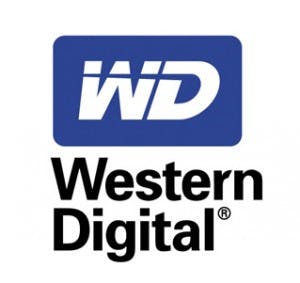Over the past couple of years, investors have become increasingly concerned about the future of Western Digital Corp. (NASDAQ:WDC) and Seagate Technology PLC (NASDAQ:STX). Both companies make hard drives (HDDs), and together the two companies control 85% of the hard drive market. Clearly, both companies are the biggest powerhouses in the industry.
However, PC sales have been declining and a different type of drive using solid state technology (SSDs) has emerged in the past couple of years. This has caused investors to be concerned about the future of the HDD companies.
Why investors are concerned

High-end laptops such as ultrabooks have also gained ground in the market, and these devices typically use SSDs instead of HDDs. This is because ultrabooks are very thin and lightweight, so they need a memory storage device that is smaller. Another benefit is that SSDs are much faster than HDDs, which is a benefit for high-end machines.
While SSDs are more expensive that HDDs, the gap in price between of the two types of devices is closing. A 500GB HDD can be purchased for under $100, while a SSD of the same capacity will cost over $300. As the price gap closes, sales of HDDs are projected to decline in the mid-teens this year.
Other companies, besides Seagate and Western Digital Corp. (NASDAQ:WDC), control the SSD industry. Fusion-IO, Inc. (NYSE:FIO) is a top SSD manufacturer that also manufactures flash memory. In order to compete, Seagate Technology PLC (NASDAQ:STX) bought Samsung’s SSD business last year for over $1 billion. Western Digital purchased Hitachi’s for nearly $5 billion last year. However, both companies still have a smaller market share than Fusion-IO, Inc. (NYSE:FIO).
The positives for HDD stocks
Even though SSDs are getting a lot of hype, they still have a small market share. The market for HDDs will drop from $38 billion to $32 billion in the next two years. However, even in 2014, the SSD market share is still going to be small by comparison. A majority of market share will still be HDDs, even with the increase in the number of mobile devices.
Both Seagate Technology PLC (NASDAQ:STX) and Western Digital Corp. (NASDAQ:WDC) might lose market share from the decline in PC sales, but HDDs will still be in high demand in the business market. Even in the future, companies will still need affordable storage for business and cloud servers. Business sales for Western Digital have been very strong, increasing by nearly five million units compared to the same quarter last year.
Cloud computing is becoming very popular. Services like Google Inc (NASDAQ:GOOG) Drive and Dropbox are in high demand. Microsoft Corporation (NASDAQ:MSFT) Skydrive has also entered the game, plus Apple Inc. (NASDAQ:AAPL) iCloud is popular as well. Customers prefer having access to files no matter where they are or what device they are using.
Additionally, streaming services like YouTube and Netflix, Inc. (NASDAQ:NFLX) require large amounts of storage. Amazon.com, Inc. (NASDAQ:AMZN) Video is also becoming a competitor in the video streaming marketing, and Hulu is another popular Internet TV service. There are also streaming music services like Pandora Media Inc (NYSE:P) that require large amounts of storage.
Even social network sites like Facebook Inc (NASDAQ:FB) require quite a bit of bandwidth. All these services will mean that business storage space will be in demand for the foreseeable future. Since SSDs are still more expensive, analysts are debating whether SSDs or HDDs will make more financial sense for these services in the future. Either way, according to Cisco Systems, Inc. (NASDAQ:CSCO), cloud service traffic will increase 40% each year for the following three years. Someone will be getting a big share of this business.
Who will dominate cloud-based services?
Apple favors SSDs and so does Facebook Inc (NASDAQ:FB). This news has alarmed shareholders of Seagate Technology PLC (NASDAQ:STX) and Western Digital Corp. (NASDAQ:WDC) because people are wondering if other large companies like Google Inc (NASDAQ:GOOG), Netflix, Inc. (NASDAQ:NFLX), or Amazon.com, Inc. (NASDAQ:AMZN) will follow suit. Facebook and Apple are basically propping up Fusion-io at this point, because both companies are responsible for almost 50% of the revenue for Fusion-io.
In my opinion, investors should not worry about companies switching to SSDs any time in the near future. Facebook and high-end companies like Apple have the extra money to spend on SSDs. The actions of these two companies do not necessarily indicate that other companies will follow suit. The economy is still on shaky ground, so I think that most companies will be slow to adopt SSDs in the foreseeable future.
If you are thinking about investing in Fusion-io, you might want to consider that its stock has dropped 25% recently, due to delayed orders from both Facebook and Apple. Hewlett-Packard Company (NYSE:HPQ) is another large client for Fusion-io and the company has been struggling recently. Therefore, I think that both Seagate and Western digital are in much more solid positions than Fusion-io.
Seagate and Western Digital are innovating
Both Seagate and Western Digital are working on technology to compete with SSDs. The two companies are developing hybrid drives that use both SSD and HDD technology in the same drive, which will give it the benefits of SSDs and the affordability of HDDs. Users can install the OS on the SSD and use the HDD portion for storage needs. Both companies also provide supplementary external drives that are used wirelessly with mobile devices to increase storage capacity.
Even more interesting, Western Digital is developing a new technology that involves helium-based drives. Helium will increase the lifespan of the hard drives, consume less energy, and will have much more capacity. It is expected that demand for these new devices will be 100 million drives per year by 2018.
All in all
In the short term, business and cloud services will help both Seagate and Western Digital stay stable and grow. The companies are already working to develop new helium-based drives that will most likely become standard in the industry. Investors believe that the outlook is good for Seagate and Western Digital because shares are up nearly 25% for both companies from last year. If you really understand the market, you will see that both of these companies are great investments.
The article Why You Should Purchase Seagate and Western Digital originally appeared on Fool.com and is written by Nauman Aly.
Nauman is a member of The Motley Fool Blog Network — entries represent the personal opinion of the blogger and are not formally edited.
Copyright © 1995 – 2013 The Motley Fool, LLC. All rights reserved. The Motley Fool has a disclosure policy.

